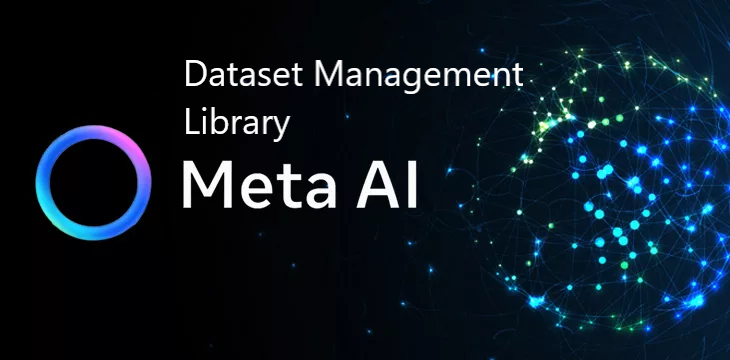
July 22, 2025
Meta AI's Dataset Management Library: Simplifying Data Handling for ML Projects
Meta AI's Dataset Management Library: Simplifying Data Handling for ML Projects
Did you ever spend more time cleaning and organizing your dataset than constructing the machine learning model?
You are not alone in this situation buddy. I can not count how many fascinating projects devolved into hours of renaming files, restoring missing labels, or building dull programs to manually separate data.
I just discovered Meta AI's Dataset Management Library, which transformed data prep. Wow, this is the toolkit I wanted years ago.
Let me explain you why this tool is so important and how to use it easily.
What is Meta AI's Dataset Management Library?
Meta's open-source Dataset Management Library streamlines machine learning data management chaos. This library simplifies loading, cleaning, structuring, and managing datasets including images, text, audio, or a combination.
It is lightweight, quick, and customizable for any workflow, whether you are developing a deep learning model with TensorFlow, training something fancy in PyTorch, or doing JAX tests.
Finally here's a toolkit that prioritizes data prep!
Why Good Dataset Management Matters
Earlier, I underestimated this step. What is the big deal if you have model architecture and GPU?
Wrong. Sloppy datasets can cause poor training. Small discrepancies, missing data, and corrupted samples creep in and destroy accuracy without your knowledge. Messy datasets cost GPU time and prevent experiment replication. Meta's library addresses clean data, ordered splits, and version control with a few easy function calls.
Setting Up the Dataset Management Library
Getting started is as painless as it gets.
All you need is one simple installation:
pip install meta-dataset-lib
Once installed, you just import it:
import meta_dataset as mdYou are ready to ace dataset management.
It worked well with local files and cloud storage like AWS S3 and Google Cloud and felt lightweight.
Loading and Structuring Datasets
Let's start with its working.
Visualize a folder full of raw photos. Instead of building a custom loader again, try this:
dataset = md.Dataset.from_folder("data/raw_images/")That is it. Your whole folder becomes a clean dataset object.
Now we'll divide this dataset into training, validation, and test sets?
train_set, val_set, test_set = dataset.split(ratios=[0.7, 0.2, 0.1])No more manual slicing or data leaks.
This was one of my greatest reliefs.
Cleaning and Preprocessing Data
Data in the actual world is rarely flawless. Missing files, damaged samples, and odd formatting are common. But now due to Meta's library, cleaning is simple.
Instantly erase corrupt files and fill missing values:
cleaned_dataset = dataset.clean(remove_corrupt=True, fill_missing="mean")
Does your model need basic data augmentations like flipping or rotating images for better training?
No problem:
augmented_dataset = cleaned_dataset.transform(augmentations=["flip", "rotate"])I love not having to connect up external libraries for simple preprocessing. My pipelines were 10x easier since everything flows automatically.
Versioning and Exporting Datasets
Dataset version management is another killer feature. You may store various versions as your project progresses, making reproducibility easy.
Here's how easy it is:
dataset.save("data/processed/version1/")
Want to tag that dataset version explicitly?
dataset.tag("v1.0")
No more cryptic folders:
final_final_real_this_time_dataset_v7//Finally, a clean approach to monitor dataset changes like Git code changes!
How It Fits into a Full Machine Learning Pipeline
You may train after cleaning, dividing, augmenting, and labeling data. The best part? You may plug the datasets into your chosen ML framework with a line of code.
For PyTorch:
torch_dataset = train_set.to_pytorch()
For TensorFlow:
tf_dataset = train_set.to_tensorflow()No awkward adapters or wrappers; it is simple plug-and-play.
Conclusion
Meta AI's Dataset Management Library is an essential tool if you are weary of disorganized datasets and squandering time before the "real work" begins. Fast, elegant, and nearly enjoyable, it makes data processing almost fun? (I was startled too.) Try it on your next machine learning project. You will wonder how you existed without it.
1k views
